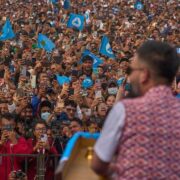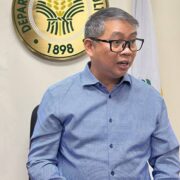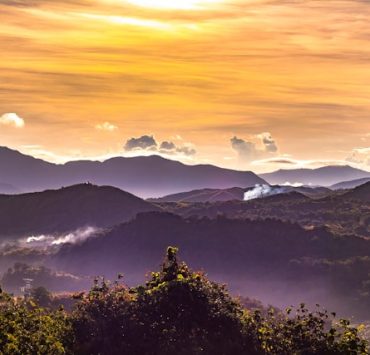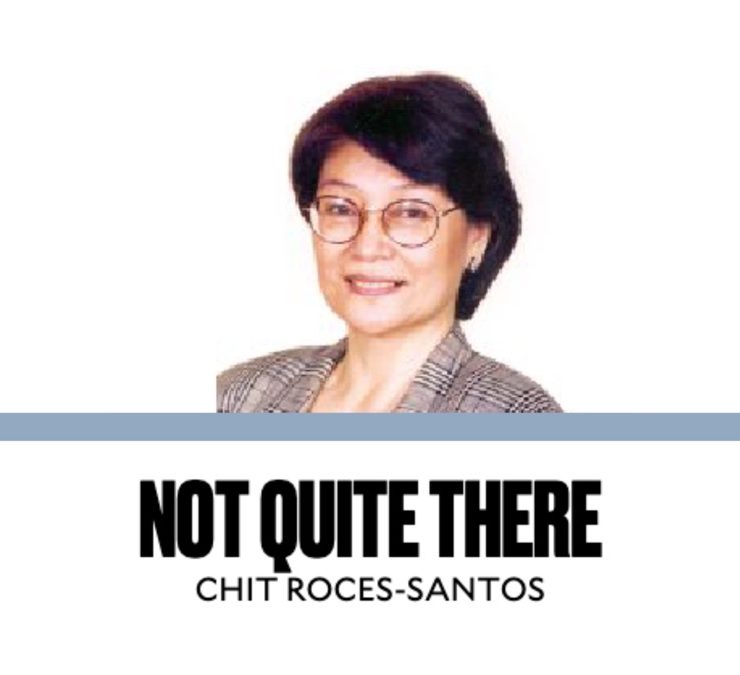‘Do something!’
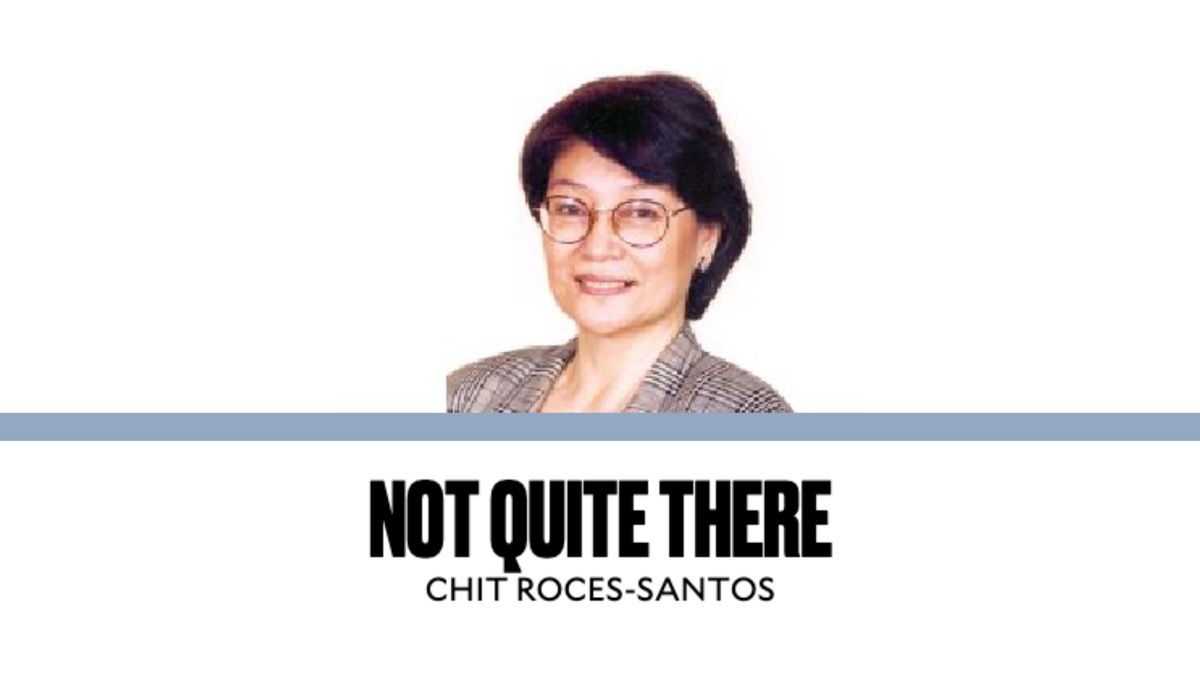
American politics has always intrigued me for the exciting way in which democracy is at work in it. But lately it’s because—while it does offer a parallel to what happens here, mainly in the serious attacks democracy comes under—its check institutions—press, courts, Congress, electoral commissions and other guardrails—are working, unlike in our case. For all that, democracy is not easy to destroy, which I can’t say in our case.
I have always envied the quality of American freedom and the opportunities it offers everyone. I love, for instance, that a first American, and black, woman president is not only possible but a real prospect.
Watching the Democratic Party convention on TV, I got all fired up for my own country by the former first lady Michelle Obama’s speech. It was brilliant in every way. Her message she herself powerfully summed up in two words: “Do something!” And, as her husband Barrack said in a previous interview, when asked if democracy could survive under possibly the most serious threat it faces, he answered, “Yes, if we fight for it!”
Indeed, just by doing their jobs, citizens are able to help keep democracy alive, which is the case of Ramona Diaz, director, writer, producer. Although herself based in the United States, thus properly infected, Diaz does her part, and it is reflected in the films she does.
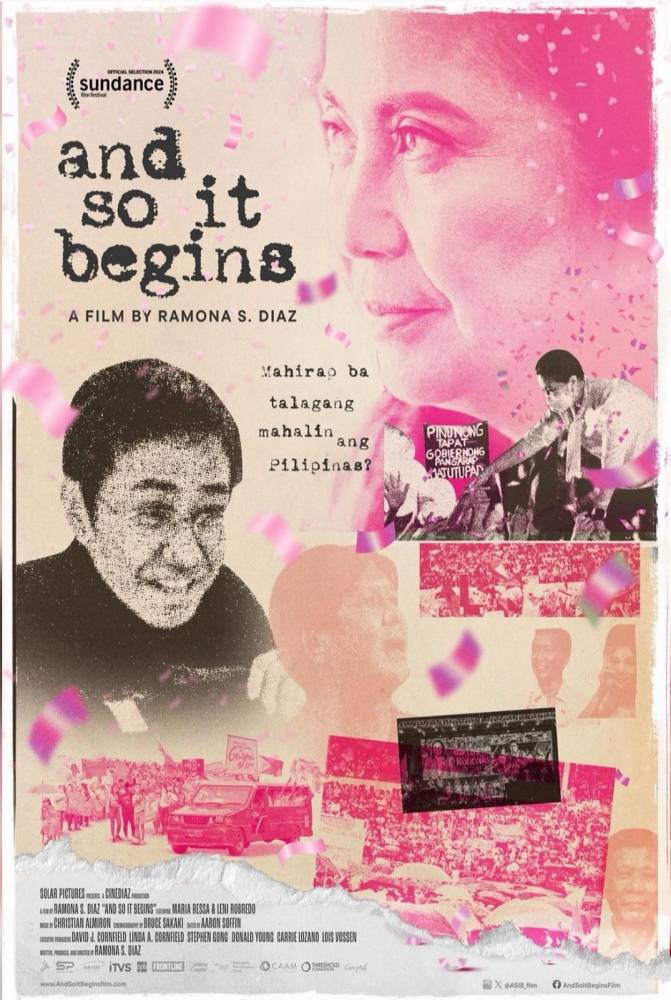
The latest one, “And So It Begins,” is now running locally. It chronicles the electoral campaign of Leni Robredo and the travails of Maria Ressa, founder and CEO of Rappler and Nobel laureate for peace.
Revived feelings
My husband and I were part of the packed audience, as we had been for her past films. The showing was mounted by her fellow Assumptionistas (High School ’79), of which my daughter happens to be one. It was for the benefit of charities under the program of the Assumption Mission Schools.
The presence of Assumption nuns at the showing, with a whole row reserved for them, revived the feeling of safety we had at rallies and everywhere else where we tried to do something for our democracies. Themselves senior citizens now, Diaz’s classmates, as their nuns taught them, seemed aware, and concerned for their own children’s future, of the present dangers to their country’s own democracy.
The screen opened to the awesome sight of one of many rallies of Robredo. Oh, what magical moments of great hope! The documentary captured the collective joy of the volunteer movement that sprung up for Robredo’s cause. Soon, I was wiping tears as familiar campaign songs filled the theater. Then, I cried even more: How could another Marcos beat our perfect candidate? At the end of the documentary, a side character, choking with tears, laments, “Ang hirap mahalin ng bayan ko!”
Effective way
During the last big typhoon, in what I saw to be a hopeful revival, Robredo’s group of volunteers mobilized themselves to aid sufferers, distributing food and other life-sustaining goods. Obviously, Robredo, in her quiet but organized and effective way, has not stopped doing something.
Diaz intended her movie to end with hope, and seemed to succeed, judging by the questions and comments it inspired. We in the audience realized just how huge those rallies really were, and what could be made to come out of them—not unlike the rallies that culminated in Edsa, the same joy, the same overpowering feeling of nationhood. We won one and lost the other.
Sitting with Diaz in the post-showing Q&A, Ressa, just now beating the concocted raps against her, warned that elections can be won or lost on social media. I cannot stop listening to her, admiring her political utterances as they shed light on our stakes in this age of social media, a platform hijacked for spreading fake news and other falsehoods.
Indeed, Ressa says, the battleground for truth is social media: “When you live in a world without facts, you can’t have truth; you can’t have trust. And when you don’t have that, your shared reality is torn apart.”
We all have our jobs cut out for us—for nation and democracy. Let’s take a cue from Robredo, Ressa, and Diaz. As Ressa said, indeed, “We should demand better.”


